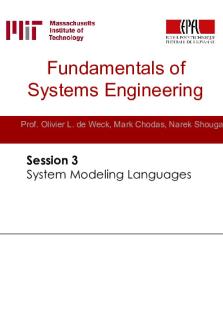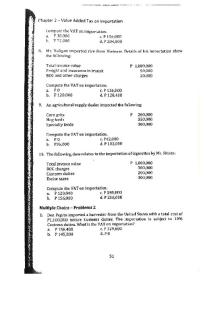Contracts Seminar 3 - Lecture notes 3 PDF

| Title | Contracts Seminar 3 - Lecture notes 3 |
|---|---|
| Course | Contracts |
| Institution | University of Melbourne |
| Pages | 3 |
| File Size | 103.8 KB |
| File Type | |
| Total Downloads | 14 |
| Total Views | 154 |
Summary
summary of all cases and principles covered in the lecture...
Description
Contracts Seminar 3 Estoppel A pre-contractual statement that does not create contractual rights may be enforceable by way of promissory estoppel. In Waltons Stores (Interstate) Ltd v Maher an estoppel arose where one party led another to act on an assumption that a contract would be made between them. It follows that if A induces B to assume that a contract to be made between them includes a particular term or that A will not enforce a particular term, and B has reasonably relied on that assumption, B will also have rights against A arising by way of estoppel. Where such an assumption was induced by a pre-contractual statement not incorporated in the contract document, however, the availability of an estoppel claim depends on the admissibility of evidence of such statements. It may also be necessary to determine whether a contract term can prevent an estoppel arising from pre-contractual discussions. Saleh v Romanous [2010] NSWCA 274 Material facts: The vendors, the appellants, entered into a contract to sell their land with the purchasers, the respondents, who paid an initial deposit. During the negotiations of the contract, one of the vendors induced the purchasers to believe that the other would participate in a joint venture with them in his absence. He stated: “Leave Eddie up to me. I’m taking responsibility for Eddie. If Eddie doesn’t want to build you don’t have to buy and you’ll get your money back.” The purchasers did were not able to get the joint venture with Edmond and purported to terminate the contract. They then started proceedings seeking their deposit. Vendor told purchaser that if JV negotiations for construction and that purchaser could withdraw and retain deposit if negotiations failed Issue: Did the parole evidence rule and clause 10.15 (express term) of the contract exclude any pre-contractual promissory estoppel? Outcome: The claim based on an oral collateral contract was rightly rejected in accordance with Hoyts’ case and the appeal failed. Reasoning: Handley AJA o Promissory estoppel imposes equitable restraints o the enforcement of contractual and other rights o The appellants relied on the proposition from Hoyts that an informal collateral contract, in consideration for entering into principal contract, cannot be inconsistent with it. They submitted that collateral contract in Hoyts’ case, like the promissory estoppel in the present case, was an attempt to restrict the exercise of rights under a written contract. He said that a collateral promise, which could not be enforced as a contract, could not be enforced as a promissory estoppel o A promissory estoppel is not enforced as a contract, but as an equitable restraint on the exercise or enforcement of the promisor’s rights. Hoyts’ case did not decide that the sub-lessee had no equity, and Isaacs J left that question open. Enforcement of a precontractual promissory estoppel is not barred by Hoyts’ case. o In fact in Bank Negara Indonesia v Hoalim [1973] 2 MLJ 3 (Bank Negara) the Privy Council held that a pre-contractual promise could support a promissory estoppel. o These cases have added pre-contractual promissory estoppel to the grounds on which equity will protect one contracting party from inequitable conduct by the other. In all these cases the legal rights trumped by equity include those protected by the parol evidence and entire contract rules.
o
o
o o
In my judgment the Judge correctly held that the purchasers had established a promissory estoppel, which entitled them to restrain the vendors from enforcing the contract of sale. Such an estoppel is not the equitable equivalent of a contract, and cannot give the purchasers positive rights to rescind and recover their deposit that they would have had if the pre-contractual promise had contractual force (expectation damages). A pre-contractual promissory estoppel, which conferred positive rights of that nature, would be contrary to Hoyts’ case. The Judge held that the promissory estoppel entitled the purchasers to rescind and recover their deposit. In my judgment positive relief was not available on that ground but his decision that the promissory estoppel prevented the vendors enforcing the contract entitled the purchasers to an order under s 55(2A). The Judge’s orders (red 84) can be affirmed without a formal order under the section. Because estoppel is a separate right and does not give rise to contractual rights and remedies, it is separate from common law and Estoppel is a ‘sheild’ but here it is a negative claim rather than a positive claim- shield from relying on the express clause in the contract.
Australian Cooperative Foods v Norco Co-operative [1999] NSWSC 274 Bryson J o Even if there were a factual basis for an estoppel, whether viewed as an estoppel by convention or a promissory estoppel, the estoppel could not be enforced because the new licence agreement is as its terms show intended to be a comprehensive written expression of the parties’ agreement, so that its provisions cannot be qualified by evidence of the terms of the parties’ negotiations. o The estoppels here contended for would be inconsistent with the express terms of cl 8.4 in that they would qualify the power which it confers, and they would be directly contrary to the terms of cl 22 an entire agreement clause; so cannot be enforced o I regard McLelland’s views as well founded on the principle of giving effect to the formal, final and considered expression of the parties’ contractual intention; the fact that they chose writing to express that intention shows the relative weight they attributed to earlier arrangements and understandings o Poorly based and incompletely considered forensic attempts to set up pre-contractual estoppels are unfortunately common, and in most cases they are quite unuseful and very wasteful of resources. Branir Pty ltd v Owtson Nominees Pty Ltd Allsop J o The parties avowed that the totality of the contract, about the relevant subject matter, is to be found within the four corners of the documents. It is unnecessary to decide, that specific and express entire agreement clauses have a particular role to play in the intersection of the operation of contract and conventional estoppel. o The clauses of a contract are to be construed in light of all that has passed between the parties o If, in the deed, the relevant provisions, especially clause 12, on their proper construction, applied to the arrangements concerning the Sanctuary, thereby preventing evidence being led of the arrangement or preventing the arrangement contradicting the deed by the setting up of a competing contract, could the evidence nevertheless be led in furtherance of proving that there were otherwise facts and circumstances which would found an estoppel whereby the appellants were estopped from denying the existence and enforceability of the Sanctuary Agreement?
o
o
o o
It is difficult to see why another remedy of equity based on unconscionability and equally arising out pre-contractual communications should be defeated by a common law rule about the construction The effect of any particular clause will of course depend on its terms and context, but in general it may be said that except in the case of fraud, and subject to any statutory provision, an entire contract clause will bind the parties in accordance with its terms, properly construed. Such a clause itself gives rise to an estoppel by convention, which excludes any antecedent estoppel, which might otherwise have had the effect; Johnson v Matthey Even if as a matter of construction they were relevant, would not preclude an estoppel running if otherwise an estoppel arises. No conclusive view expressed: force in view that there remains a role for equitable estoppel even where entire agreement clauses are used
What the purpose of an entire agreement clause? Try and prevent claims of representations, other terms and estoppel. It makes clear that the parole evidence rule is supposed to kick in and that the contract is not partly written and partly oral. Hypothetical questions o What are the facts? o What does each party one? o What legal issues need resolving to determine those rights and obligations? o What is the best way to approach this (structure)?...
Similar Free PDFs

Seminar notes - week 3
- 14 Pages

3 - Lecture notes 3
- 7 Pages

Notes#3 - Lecture 3 notes
- 49 Pages

Seminar 3
- 5 Pages

Seminar 3
- 2 Pages

Lecture notes, lecture 3
- 8 Pages

Lecture notes, lecture 3
- 5 Pages

Lecture notes, lecture 3
- 59 Pages

Chapter 3 - Lecture notes 3
- 1 Pages

Chapter 3 - Lecture notes 3
- 30 Pages

Chap 3 - Lecture notes 3
- 4 Pages

CIV1000 - 3 - Lecture notes 3
- 4 Pages

Chapter 3 - Lecture notes 3
- 6 Pages

Chapter 3 - Lecture notes 3
- 6 Pages
Popular Institutions
- Tinajero National High School - Annex
- Politeknik Caltex Riau
- Yokohama City University
- SGT University
- University of Al-Qadisiyah
- Divine Word College of Vigan
- Techniek College Rotterdam
- Universidade de Santiago
- Universiti Teknologi MARA Cawangan Johor Kampus Pasir Gudang
- Poltekkes Kemenkes Yogyakarta
- Baguio City National High School
- Colegio san marcos
- preparatoria uno
- Centro de Bachillerato Tecnológico Industrial y de Servicios No. 107
- Dalian Maritime University
- Quang Trung Secondary School
- Colegio Tecnológico en Informática
- Corporación Regional de Educación Superior
- Grupo CEDVA
- Dar Al Uloom University
- Centro de Estudios Preuniversitarios de la Universidad Nacional de Ingeniería
- 上智大学
- Aakash International School, Nuna Majara
- San Felipe Neri Catholic School
- Kang Chiao International School - New Taipei City
- Misamis Occidental National High School
- Institución Educativa Escuela Normal Juan Ladrilleros
- Kolehiyo ng Pantukan
- Batanes State College
- Instituto Continental
- Sekolah Menengah Kejuruan Kesehatan Kaltara (Tarakan)
- Colegio de La Inmaculada Concepcion - Cebu

